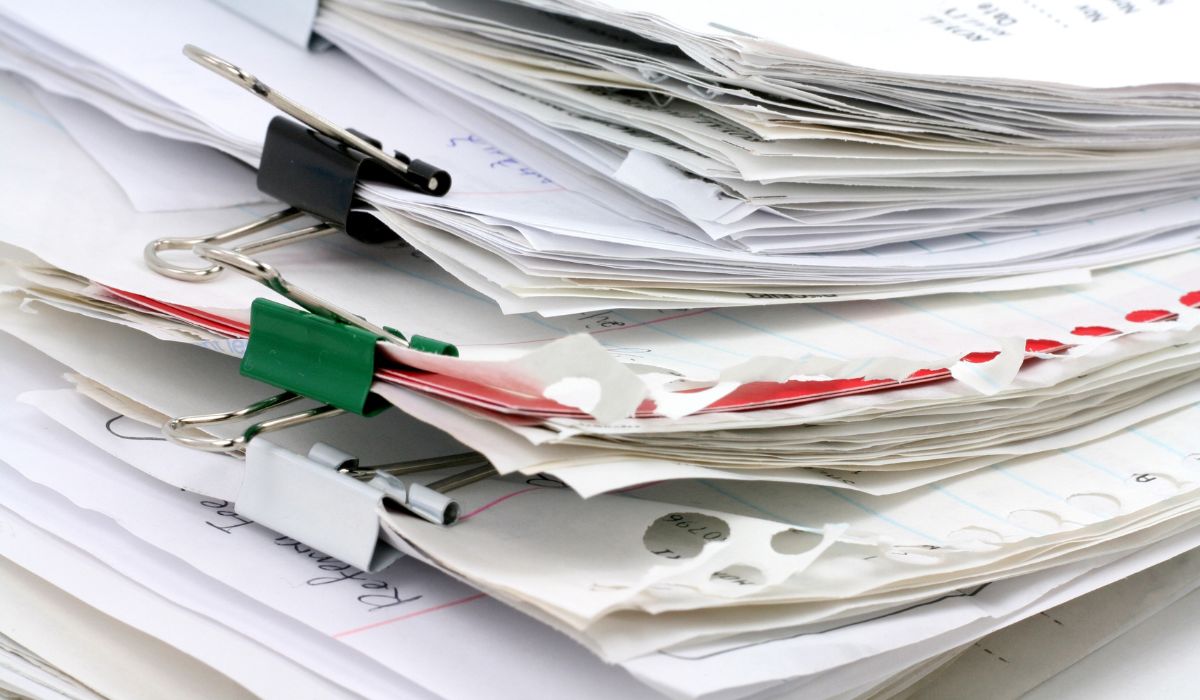Are you a part of the vibrant and ever-evolving wine industry? If so, then you’re probably well aware of the unique challenges that come with reconciling finances in this dynamic field. From managing inventory to tracking sales and expenses, maintaining accurate financial records can be quite a balancing act.
But fear not! Here at Protea Financial, we want to explore the common reconciliation challenges faced by wineries and provide tips on how to overcome them. Whether you’re struggling with discrepancies or seeking ways to streamline your financial processes, our team is here to help. So, grab a glass of your favorite vintage and let’s dive into the world of reconciliation challenges in the wine industry!
Common Reconciliation Challenges Faced in Finances
Reconciling finances can be a complex and time-consuming task for all industries, and the wine industry is no exception. Wineries face unique challenges when it comes to financial reconciliation, which can make the process even more daunting. Here are some of these common challenges that wineries often encounter.
- One challenge faced by wineries is dealing with multiple sales channels. Wineries may sell their products through various avenues such as direct-to-consumer sales, online platforms, distributors, or retailers. Each channel may have its own payment processing systems and reporting mechanisms, making it difficult to reconcile all the different transactions.
- Another challenge is tracking inventory accurately. The wine industry relies heavily on inventory management due to perishable goods and batch production processes. However, discrepancies in inventory counts or incorrect allocation of costs can lead to inaccuracies in financial statements.
- Moreover, managing cash flow effectively poses another significant challenge for wineries. With fluctuating demand throughout the year and long production cycles for wines aged in barrels or tanks before release, cash flow forecasting becomes crucial but challenging.
- Additionally, reconciling vendor invoices against purchase orders can be a tedious task for wineries. Discrepancies between invoiced quantities or prices compared to original purchase order data can create confusion and delay the reconciliation process.
- Navigating regulatory compliance requirements adds complexity to financial reconciliation in the wine industry. Compliance with tax regulations at both federal and state levels requires accurate recording of sales figures and tax calculations—a potentially intricate undertaking without proper expertise.
Overcoming these challenges requires proactive measures from winery owners and managers:
- Implementing robust accounting software tailored specifically for the wine industry can streamline financial processes.
- Conducting regular physical inventory counts helps ensure accuracy.
- Maintaining open communication with vendors to resolve any invoice discrepancies promptly.
- Outsourcing bookkeeping services specialized in the wine industry provides expert assistance while freeing up valuable time for winery staff to focus on core operations.
By addressing these common challenges head-on, wineries can better navigate the intricacies of financial reconciliation and ensure the accuracy and health of their financial records.

Reasons for Discrepancies in Wine Industry Finances
The wine industry is a complex and multifaceted business, with many moving parts that can contribute to discrepancies in finances.
- One major reason for these discrepancies is the nature of winemaking itself. From grape cultivation to fermentation to aging, each step in the process requires meticulous attention to detail and measurement. Any slight variation or error can have a ripple effect on financial records.
- Another contributing factor is the diverse range of products offered by wineries. With different varietals, vintages, and packaging options, keeping track of inventory and sales can become overwhelming. Additionally, seasonal fluctuations in demand and supply add another layer of complexity.
- Inadequate record-keeping practices also play a role in reconciliation challenges. Without accurate documentation of purchases, expenses, and sales, it becomes difficult to identify discrepancies or pinpoint their origins.
- Furthermore, human error cannot be overlooked as a potential source of financial inconsistencies. Whether it’s data entry mistakes or miscommunication between departments, even small errors can accumulate over time and create significant discrepancies.
- Lastly but importantly, technological limitations may hinder efficient reconciliation processes within the wine industry. Outdated software systems or an absence of integrated platforms make it harder to track transactions across multiple channels accurately.
By understanding these reasons for discrepancies in wine industry finances, businesses can take proactive steps towards overcoming them effectively.
Tips for Overcoming Reconciliation Challenges
Navigating the world of finances in the wine industry can be difficult, especially when it comes to reconciling your accounts. However, with a few helpful tips, you can overcome these challenges and ensure that your financial records are accurate and up-to-date.
It’s crucial to establish clear processes and procedures for reconciliation. This includes setting aside dedicated time each month to review and compare your financial statements against bank statements or other relevant documents. By creating a routine, you’ll be able to stay on top of any discrepancies or errors quickly.
Another tip is to leverage technology. Many accounting software programs offer automated reconciliation features that can streamline the process. These tools can help identify and flag any inconsistencies, saving you valuable time and reducing human error.
Additionally, maintaining detailed records is essential for successful reconciliation. Keep track of all transactions related to your winery – from sales receipts to expenses – so that you have a complete paper trail. This documentation will prove invaluable if any issues arise during the reconciliation process.
Regular communication with stakeholders is also key when overcoming reconciliation challenges in the wine industry. Ensure that everyone involved understands their roles and responsibilities in maintaining accurate financial records. By fostering open lines of communication, you can address any discrepancies promptly and avoid future problems.
Don’t hesitate to seek professional assistance if needed. Outsourcing bookkeeping services specifically tailored for wineries like Protea Financial eliminates the stress associated with reconciling finances on your own. Our team of experts has extensive knowledge in handling accounting tasks unique to the wine industry, ensuring accuracy while freeing up valuable time for you as a business owner.
Reconciling finances doesn’t have to be an overwhelming task in the wine industry; by implementing these tips effectively, you’ll be well-equipped to overcome common challenges and maintain accurate financial records for your winery business.

Benefits of Outsourcing Bookkeeping Services for Wineries
Outsourcing bookkeeping services for wineries can offer numerous benefits and help overcome the challenges of reconciliation in the wine industry.
Outsourcing allows wineries to tap into the expertise of professionals who specialize in financial management for the wine industry. These experts understand the unique complexities and regulations involved in managing winery finances, ensuring accurate reconciliation.
Outsourcing bookkeeping services frees up valuable time and resources within the winery. Instead of allocating staff members to handle financial tasks, they can focus on core operations like production and sales.
Furthermore, outsourced bookkeepers utilize advanced accounting software that streamlines processes and reduces errors. This technology enables faster reconciliations and provides real-time visibility into financial data.
Another benefit is cost savings. By outsourcing bookkeeping functions, wineries eliminate expenses associated with hiring full-time employees or investing in expensive accounting software.
In addition to these advantages, an outsourced bookkeeping service offers a fresh perspective on financial management. They bring unbiased insights and recommendations based on their experience working with multiple wineries.
Outsourcing bookkeeping services for wineries brings efficiency, expertise, cost savings, improved accuracy, and valuable insights – all essential elements for overcoming reconciliation challenges in the wine industry.
Call on the Experts at Protea Financial for Help with Your Reconciliation Challenges
Navigating the complex world of financial reconciliation in the wine industry is challenging. From managing inventory and sales to tracking expenses and ensuring accurate financial reporting, there are numerous challenges that wineries face when it comes to reconciling their finances.
However, there is no need to tackle these challenges alone. By partnering with an experienced bookkeeping service like Protea Financial, you can get expert help in overcoming your reconciliation obstacles.
Protea Financial specializes in providing comprehensive outsourced bookkeeping services tailored specifically for wineries. Our team of skilled professionals understands the unique needs of the wine industry and has extensive experience working with wineries of all sizes.
By outsourcing your bookkeeping needs to us, not only do you save time and resources but also gain peace of mind knowing that your financial reconciliation is being handled by knowledgeable professionals who have a deep understanding of the wine industry.
Don’t let reconciliation challenges hinder the growth and success of your winery. Reach out to Protea Financial today for personalized assistance with all aspects of financial reconciliation. With our expertise by your side, you can focus on what matters most – crafting exceptional wines – while we take care of reconciling your finances accurately and efficiently!
FAQs: Navigating Financial Reconciliation Challenges in the Wine Industry
1. What are the common financial reconciliation challenges faced by wineries?
Wineries often struggle with multiple sales channels, inventory tracking, and cash flow management. Each sales avenue—whether direct-to-consumer, online platforms, or distributors—comes with unique payment processes that complicate reconciliation. Accurate inventory management is crucial due to perishable goods and batch production. Cash flow forecasting is challenging with fluctuating demand and long production cycles, making precise financial planning vital.
2. How can wineries overcome discrepancies in their financial records?
Discrepancies in financial records can arise from human error, inadequate record-keeping, or complex sales channels. To overcome these issues, wineries should implement meticulous documentation practices, ensuring accurate recording of purchases, expenses, and sales. Utilizing advanced accounting software can help identify inconsistencies. Regular audits and physical inventory counts are also essential for maintaining accurate financial records.
3. Why is inventory management critical for wineries?
Inventory management is crucial in the wine industry due to the perishable nature of wine and the complexities of batch production. Accurate inventory tracking ensures proper cost allocation and helps avoid discrepancies in financial statements. Implementing robust inventory management systems and conducting regular physical counts can significantly enhance accuracy and streamline operations.
4. How does effective cash flow management benefit wineries?
Effective cash flow management is essential for wineries due to seasonal demand fluctuations and long production cycles. Accurate cash flow forecasting helps manage resources efficiently, ensuring that the winery can cover operational expenses and invest in future production. Utilizing cash flow management tools and seeking expert financial advice can help wineries maintain a healthy financial state.
5. What role do vendor relationships play in financial reconciliation?
Maintaining open communication with vendors is crucial for resolving invoice discrepancies promptly. Discrepancies between invoiced quantities or prices and purchase orders can delay reconciliation. Building strong vendor relationships ensures timely resolution of such issues, aiding smoother financial reconciliation processes and maintaining good business partnerships.
6. How can technology assist wineries in financial reconciliation?
Advanced accounting software can streamline reconciliation by automating processes and identifying inconsistencies. These tools provide real-time visibility into financial data, reducing the likelihood of human error. Investing in industry-specific software tailored to wineries can significantly enhance accuracy and efficiency in financial management.
7. Why is regulatory compliance challenging for wineries?
Wineries must navigate complex tax regulations at both federal and state levels. Accurate recording of sales figures and tax calculations is crucial for compliance. Non-compliance can lead to hefty penalties. Consulting with experts in wine industry regulations and investing in compliance-focused software can help wineries stay on track.
8. How can outsourcing bookkeeping services benefit wineries?
Outsourcing bookkeeping allows wineries to leverage the expertise of professionals specialized in the wine industry. This ensures accurate financial records and frees up valuable time and resources. Outsourced bookkeepers utilize advanced software, offering real-time financial insights and reducing errors, ultimately contributing to better financial health and operational efficiency.
9. What are the benefits of regular financial audits for wineries?
Regular financial audits help identify discrepancies and ensure accurate financial records. Audits provide an objective review of financial statements, highlighting areas for improvement. They also enhance transparency and build trust with stakeholders, including investors and regulatory bodies. Conducting audits regularly is a best practice for maintaining financial integrity and accountability.
10. How can wineries improve their financial reconciliation processes?
Wineries can enhance their financial reconciliation processes by implementing robust accounting systems, conducting regular audits, and maintaining detailed records. Leveraging technology for automation and real-time insights, building strong vendor relationships, and seeking expert advice can significantly improve reconciliation accuracy and efficiency, ensuring a healthy financial state for the winery.



